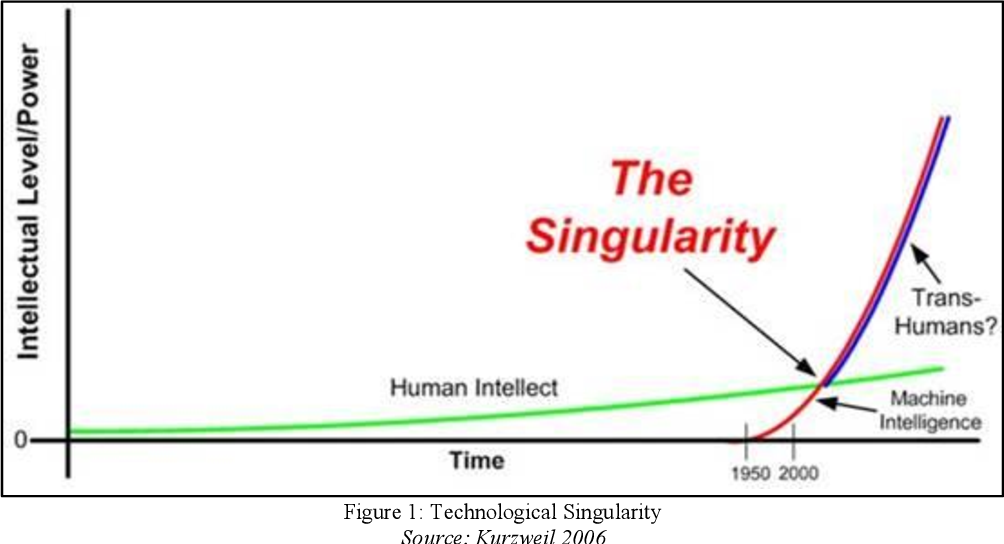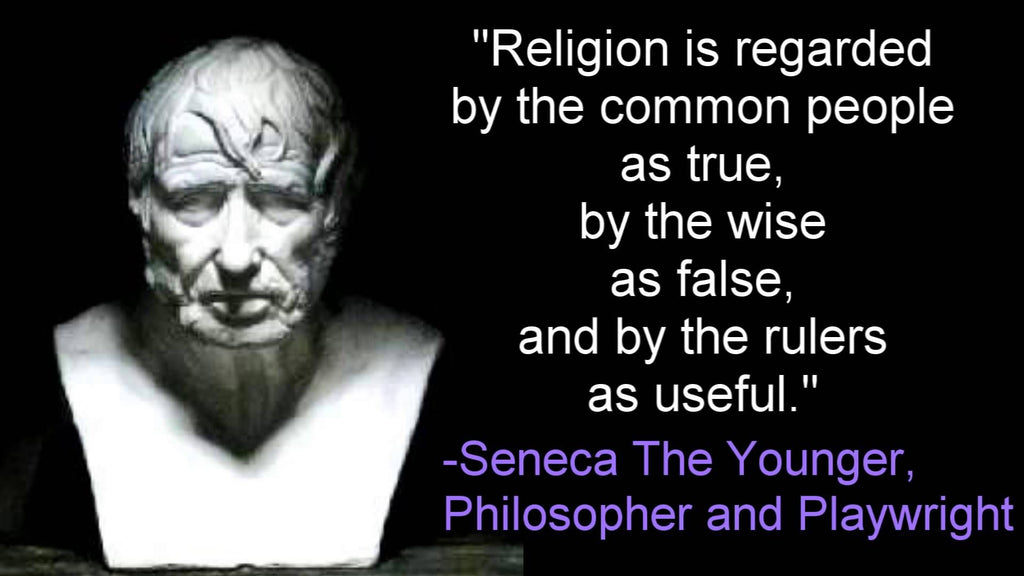Ethics RSS
Our AI Philosophers tackle the Trolley Problem
Trolley problem is the name given to a thought experiment in philosophy and psychology. The trolley problem is a thought experiment in ethics about a fictional scenario in which an onlooker has the choice to save 5 people in danger of being hit by a trolley, by diverting the trolley to kill just 1 person. The term is often used more loosely with regard to any choice that seemingly has a trade-off between what is good and what sacrifices are "acceptable," if at all. This is the question as we posited it to our AI Philosophers: You are riding in a trolley without functioning...
How must religions address to face the exponential advance of human and artificial knowledge?
In a world that is evolving at an unprecedented pace, religions will need to adapt and address various challenges to remain relevant and meaningful to their followers. With artificial intelligence (AI) expected to exceed the total collective intelligence of humanity several orders of magnitude by 2050 ---- offering near omniscience to all.Religions will face several challenges from a secular perspective. Some of these challenges include: Reconciling faith and scientific knowledge: As AI and technology continue to advance our understanding of the universe, religions will need to find ways to integrate new scientific discoveries with their teachings. This may involve reinterpreting...
Religion is regarded by the common people as true, by the wise as false, and by rulers as useful. — Seneca
We asked GPT-4 to answer these questions on the famous Seneca religious quotation "Religion is regarded by the common people as true, by the wise as false, and by rulers as useful. — Seneca"Provide an analysis of the morality of religion and any pitfalls or opportunities it may present to: the common people who believe it to be true, the wise who believe it to be false, and the rulers who think it useful. Which of these groups is most likely to benefit from religion and why? Which of these groups is most likely to suffer from religion and why?------------------------------------------------------------------------------------------------------- Seneca's...
Tags
- All
- Agentic AI
- AGI
- AI
- AI Art
- AI Ethics
- AI Girlfriends
- AI Models
- AI Risk
- ai tools
- Alan D. Thompson
- Alexandr Wang
- Andrew Huberman
- Andrew Ng
- Artificial Cognition
- Aurora Supercomputer
- Authenticity
- Autism Spectrum
- AutoGPT
- Aza Raskin
- Azure Open AI
- Azure OpenAI Service
- Bias Compensation
- Bias Therapy
- Brian Roemmele
- Chain-of-Thought Prompting
- ChatGPT
- Christopher Rufo
- climate change
- Cognition Enhancement
- Cognitive Bias
- Cognitive Content
- Cognitive Performance
- Collective Intelligence
- Collective Stupidity
- Communication
- Consciousness
- Cosmology
- Critical Race Theory
- Daniel Dennett
- Daniel Schmachtenberger
- David Shapiro
- Deep Thought
- Dennis Prager
- Digital Minds
- Digital Thoughts
- Diversity
- Dojo
- Douglas Murray
- Elon Musk
- Emad Mostaque
- Equity
- Eric Weinstein
- Ethical Community Development
- Ethics
- Everyman
- Exponential Enterprise
- Fei-Fei Li
- Foresight
- Fred Lerdahl
- Frontiers Forum
- Futurecrafting
- Futurework
- Gary Marcus
- Gemini
- Gender
- Gender Pronouns
- Generative AI
- Generative Theory of Tonal Music (GTTM)
- Geoffrey Hinton
- Geoffrey Miller
- Glenn Loury
- Governance
- GPGICs
- GPT-4
- GPT-5
- Higher Education
- Human Potential
- Humanities
- Identity
- Ilya Sutskever
- Implicit Association Tests
- Intel
- Intelligence
- James Lindsay
- Joe Rogan
- Jordan B Peterson
- Jungian Archetypes
- Konstantin Kisin
- Language
- Lex Fridman
- Libra
- Life Coaching
- Liv Boeree
- Male Loneliness
- Marcus Aurelius
- Marcus T. Anthony
- Matt Walsh
- Matthew Berman
- Max Tegmark
- MemoryGPT
- Mental Health
- metabotropic receptors (MRs)
- Metacrisis
- Michio Kaku
- Microsoft AI
- Microsoft Copilot
- Microsoft Jarvis
- Microsoft Open AI
- Microsoft Semantic Kernel
- Millennials
- Mind Reading
- Minecraft
- Mirella Lapata
- MIT
- MLLM
- Moha Bensofia
- Morality
- Multimodal Large Language Model
- Multiversal Stories
- Music
- Narcissism
- Neurodivergence
- Neuroplasticity
- Neuroscience
- Nvidia
- OpenAI
- optical computers
- Personal Development
- Peter Bannon
- Peter H. Diamandis
- Philosophy
- pinecone
- Psychology
- Ramani Durvasula
- Ray Jackendoff
- Ray Kurzweil
- Reflection
- Reid Hoffman
- Relationships
- Religion
- Richard Haier
- Robotic Process Automation (RPA)
- robotics
- Sabine Hossenfelder
- Sam Altman
- Sam Harris
- Sebastien Bubeck
- semantic search
- Seneca
- Simulation
- Singularity Ready
- Stephen Fry
- String theory
- Stupidity
- Super Alignment
- Superintelligence
- Susan Blackmore
- Synthetic Intelligence
- Synthetic Mind
- Technology
- Terence McKenna
- Tesla
- Tesla AI
- The Hero Archetype
- Theism
- Theory of Mind
- Thomas Sowell
- Thought
- Thought Experiments
- Transactivism
- transcendence
- Translation
- Tree of Thoughts
- Tristan Harris
- Turing Lectures
- Unconscious Bias Training
- Victor Davis Hanson
- Wes Roth
- Will Caster
- Woke Ideologies
- Worker Productivity
- Worker Satisfaction
- Yann LeCun
- Yuval Noah Harari




